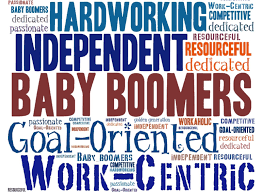A practical guide to understanding autonomous AI agents, why they matter for healthcare governance, and what to do about them.
The growing ecosystem of devices and products serving peoples’ health and well-being shows us that innovators already see the opportunity to serve the fast-growing market for self-care among people 50 years of age and up.
For nearly twenty years, one thing has felt inevitable: when boomers reach “old age,” senior living demand will surge. And yet ..
ChatGPT Health builds on consumer use of today's ChatGPT so responses are informed by your health information and context.
The prize honors .lumen’s Glasses for the Blind, an AI-based device that applies autonomous driving technology adapted for pedestrians. Using computer vision and local processing, the headset understands the three-dimensional environment in real time without relying on the internet or pre-defined maps and guides the user through subtle vibrations indicating a safe direction to follow.

 The baby boomer generation’s later years will be unprecedented. Each time the population aged 65+ is counted, it’s a bigger number. That onslaught, now at 52 million, bears repeating. The boomers, turning 65 at a rate of 10,000 a day, are pushing and prodding assumptions, deadlines, and pundit predictions. As they do so, they will force industries to change offerings – and drive considerable change in technology that underpins their lives. Consider signals from today's older adults that will only become more pronounced as the boomers move past today's upper age of 73. Innovators should understand and and match their offerings to clear trends indicating that:
The baby boomer generation’s later years will be unprecedented. Each time the population aged 65+ is counted, it’s a bigger number. That onslaught, now at 52 million, bears repeating. The boomers, turning 65 at a rate of 10,000 a day, are pushing and prodding assumptions, deadlines, and pundit predictions. As they do so, they will force industries to change offerings – and drive considerable change in technology that underpins their lives. Consider signals from today's older adults that will only become more pronounced as the boomers move past today's upper age of 73. Innovators should understand and and match their offerings to clear trends indicating that: